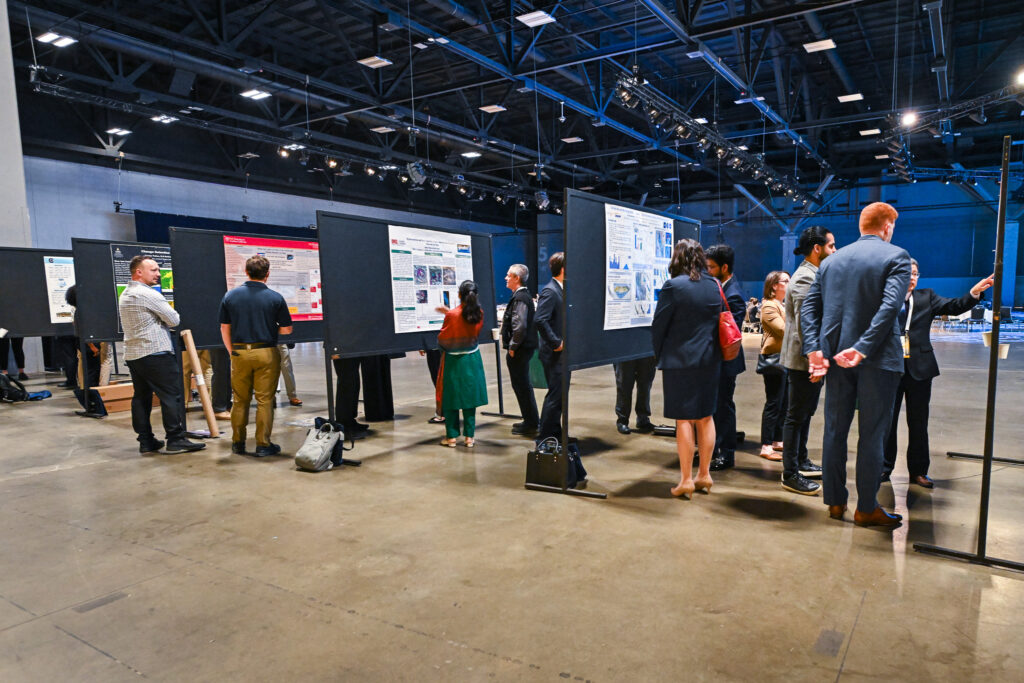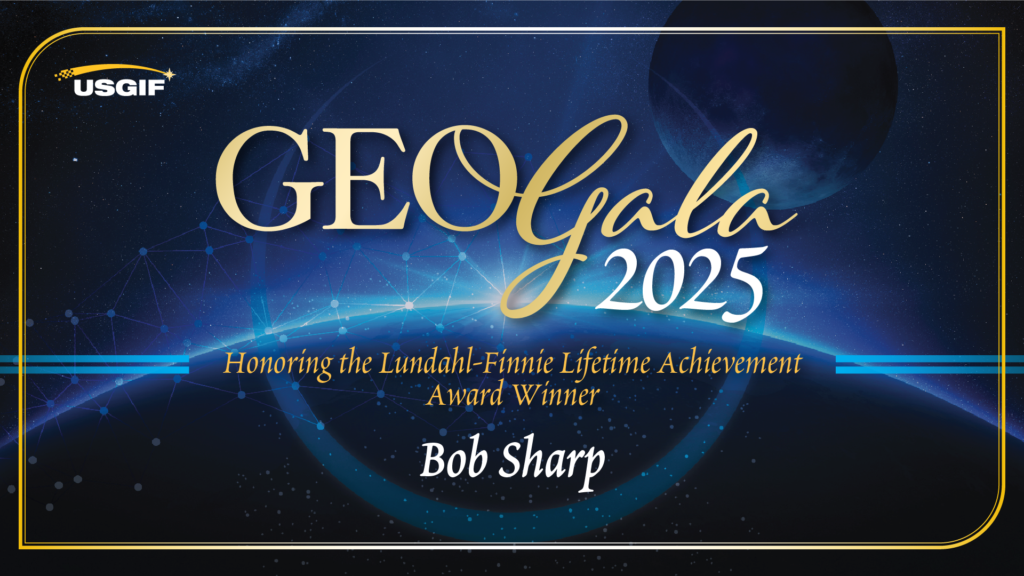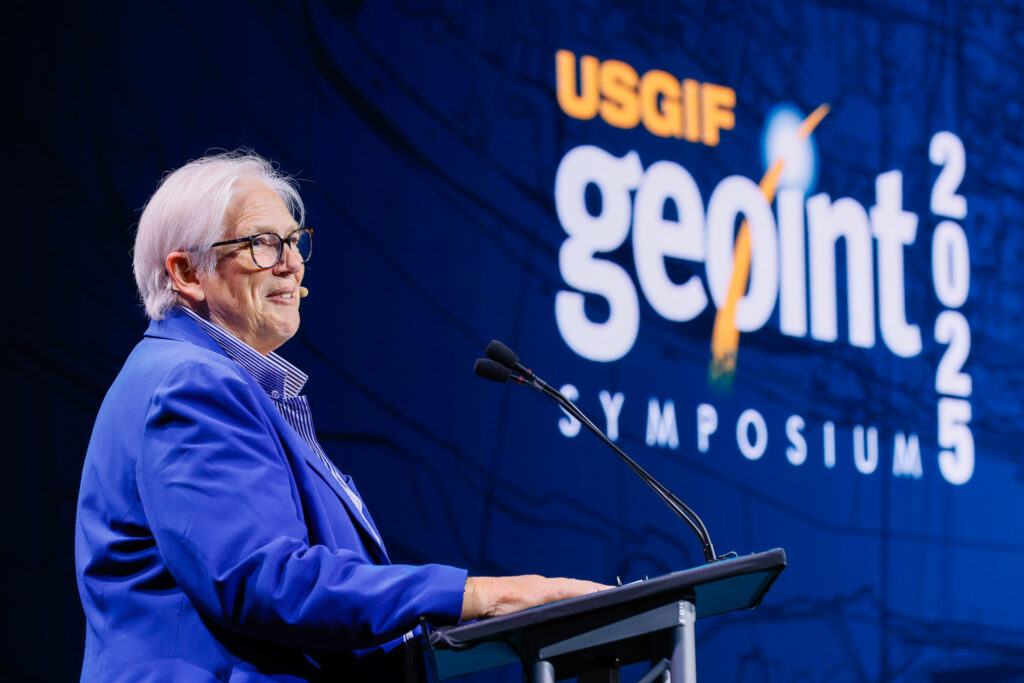Fair Exchange
The GEOINT community and universities can build valuable relationships by fostering cross-pollination of knowledge, resources, talent, and vision.

Fair Exchange: The panel on Capitalizing Academic Knowledge–New Intersections with Industry and Government presented a lively discussion on what the academic community can do to support the continued expansion of geospatial education, as well as how the GEOINT community can benefit from partnerships with universities.
Kicking off the discussion, Roberta Cordano, the first deaf president of Gallaudet University, spoke about the longstanding relationship between the university and the intelligence community. “There are many deaf and hard of hearing employees who are part of the intelligence community,” she said. “I was first looking at deaf and hard of hearing employees and career development pathways for them but since then, our relationship with Director [VADM Robert] Sharp has changed dramatically and our strategic partnership has grown deeply.”
Later in the discussion, Cordano stressed the value that the school and its predominantly deaf students and faculty can bring to the intelligence community. “Generally, people don’t know anything about our economy, our culture and what we have to contribute. There are 200 to 300 other signed languages around the world, and yet only 100 to 125 sign languages have been documented and recognized as official languages. So, just as Gallaudet University was the pioneer in the documentation of American Sign Language in 1960—the first time sign language was ever documented as a language—we see there are gaps in the intelligence community of understanding people who are deaf, not only here in the nation but around the world.”
Fair Exchange: When Ken Olliff, vice president for research and partnerships at Saint Louis University (SLU), first learned about the NGA’s plans to establish its 1.7 billion-dollar campus in St. Louis, he confessed that he was unfamiliar with the agency and its mission. “I naively sent an email to then Director Robert Cardillo and said, ‘I’m from SLU, would you have some time to talk with me,’ and to my great surprise, he actually responded and took a meeting with me,” Olliff recalled. “He told me, ‘When I made the decision to locate the new campus in St. Louis, I had in mind that building these kinds of collaborations with the academic community was essential to the success of the future of the agency.’ So, SLU hired Robert Cardillo as a distinguished fellow to advise us on building a geospatial institute and the broader regional agenda that we’ve been working on together.”
Freddie Wills, vice-president for STEM Initiatives and Research Partnerships at Harris-Stowe State University (St. Louis’s only historically Black university), lauded his school’s educational partnership agreement (EPA) with NGA and is excited to explore opportunities for students and faculty. “Through that agreement, we’re looking to build our curriculum and expand our academic enterprise. We also want to make sure that our students have the opportunity to get jobs at a future that’s coming here to St. Louis, so it’s very important we continue our efforts to make sure we are part of this conversation for years to come.”
Fair Exchange: Kristin Sobolik, chancellor at the University of Missouri–St. Louis, went further when assessing the give-and-take among universities and the public and private sectors. In response to remarks from President Cardano, she added, “You’re right when you talk about the pace of higher education and making sure that we’re aligning more with our industry partners, while coming to meet in the middle so that we have a better understanding.”
Wills closed out the discussion with a forward-looking statement. “We have to be more intentional about creating these type of opportunities to talk with one another,” he commented. “We’re in the business of building talent for industry and for government. And government and industry are in the business of enhancing that talent. But we can’t do that without having conversations about what we need to be doing in academia to prepare our students to come into your companies or the government. We need to be in conversation more with more intentionality and more opportunities for us to have natural discussions about collaborating and partnering with one another.”
Related Articles
USGIF Celebrates 2025 GEOINT Symposium Student Poster Winners
USGIF proudly recognizes the outstanding achievements of the top three winners of the 2025 Student Poster Competition, selected from an exceptional field of uni…
USGIF Honors Vice Admiral Robert Sharp, USN (Ret.), with 2025 Lundahl-Finnie Lifetime Achievement Award
The United States Geospatial Intelligence Foundation (USGIF) is proud to announce Vice Admiral Robert “Bob” Sharp, USN (Ret.), as the recipient of the 2025 Arth…
GEOINT Symposium 2025 Day Three Recap
GEOINT’s Next Frontier: Space Collaboration and Strategic Alignment The final general session day of the 2025 GEOINT Symposium highlighted the challenges and o…




